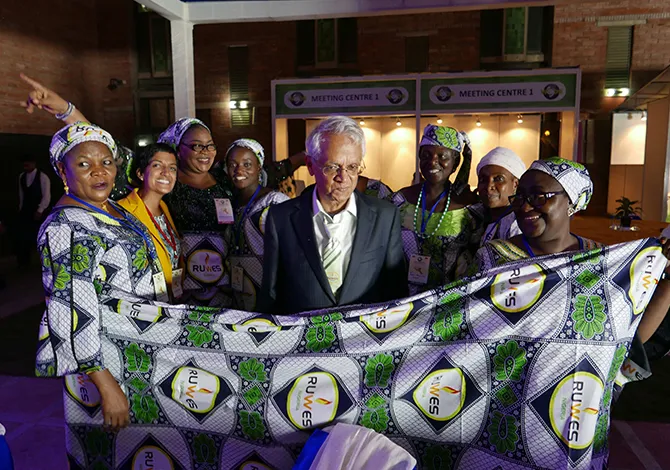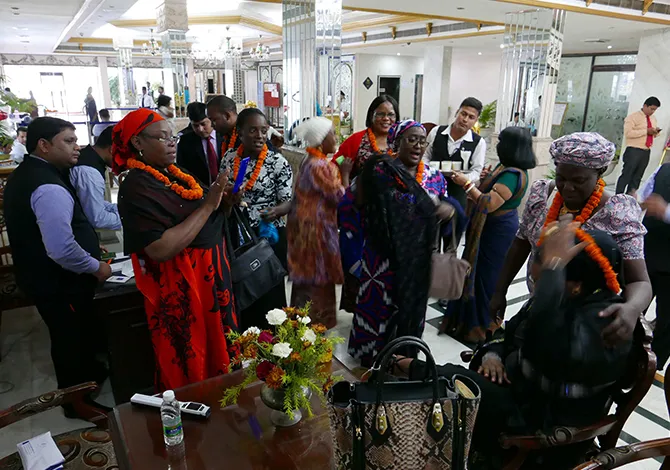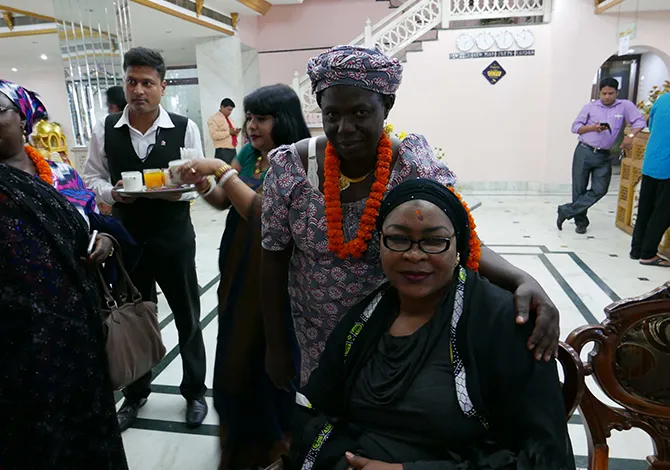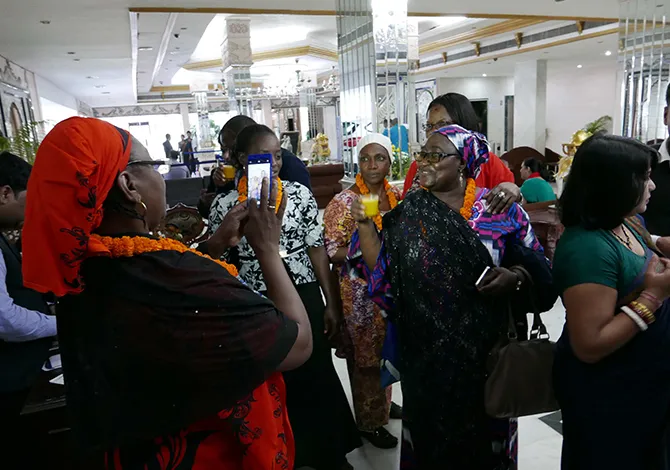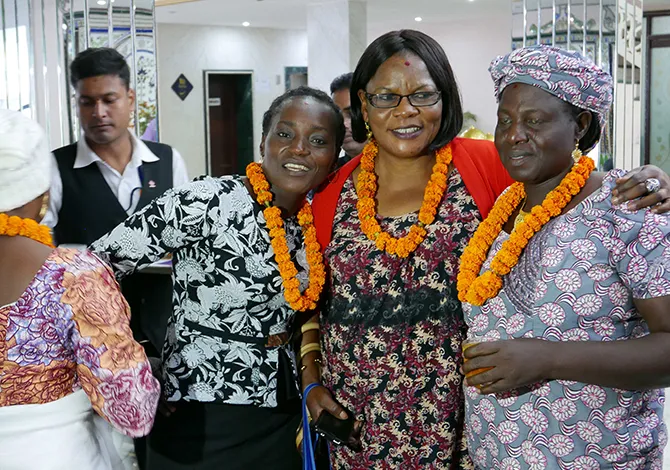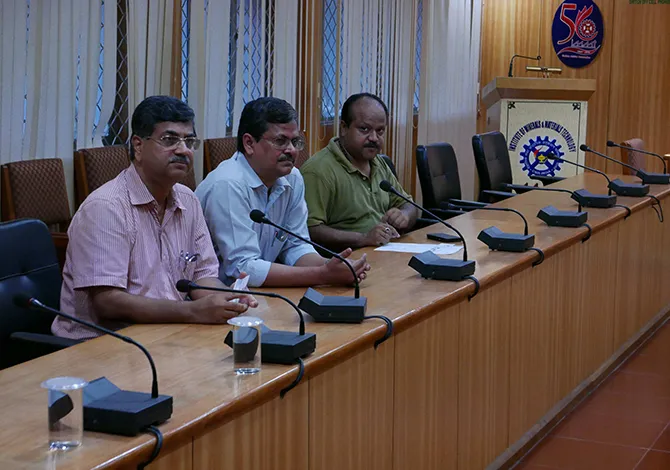In October 2016, the Climate and Clean Air Coalition’s Solution Centre organised an exchange between a group of RUWES women and Project Surya to learn how rural women in Odisha, India are transitioning to clean household energy. They met with women in three villages where they saw different clean cookstove technologies, spoke to rural development organisations about different strategies to finance their own projects, and saw the impact the projects have had on people’s lives.
Of particular interest to the women was how mobile technology is helping women afford clean cooking technology. In the villages of Keonjhar and Notarpali they saw how sensors connected to cookstoves transmit information via a mobile network to show how often and how long clean cookstoves are used. This helps the organisation Nexleaf Analytics quantify how much black carbon and carbon dioxide is prevented from being emitted into the atmosphere. This is then translated into ‘climate credits’, which enable women to get payments for using their stoves.
RUWES and Nexleaf are now trialling a similar scheme in two villages (Mararraban-Burum and Katampe) close to the Nigerian capital, the projects in Burum and Katampke, Abuja, Nigeria are modelled after the projects in Keonjhar and Notarpali in Odisha, India, by transitioning rural Nigerian women from their traditional energy practices to clean household energy. It involves utilising mobile technology to help women to afford clean cookstoves. These clean cookstoves were distributed to beneficiary houses within the two (2) communities, and they were connected to sensors which transmit information on the frequency and duration of use of the clean cookstoves via a mobile network provider. This enables RUWES and Nexleaf Analytics quantify black carbon and carbon dioxide emission reduction. This calculation is then translated into ‘climate credits’, which enable rural Nigerian women, who are the direct users of the stoves, to get payments for using their stoves.
In March 2017, a team from the CCAC visited the project sites, and the purpose of the visit was to enable the CCAC Household Energy Initiative ascertain the use and efficiency of clean cook stoves that have been widely popularised and adopted by the rural populace in Nigeria through the activities of the RUWES and Nexleaf Analytics as part of the CCAC Solution Center intervention.

